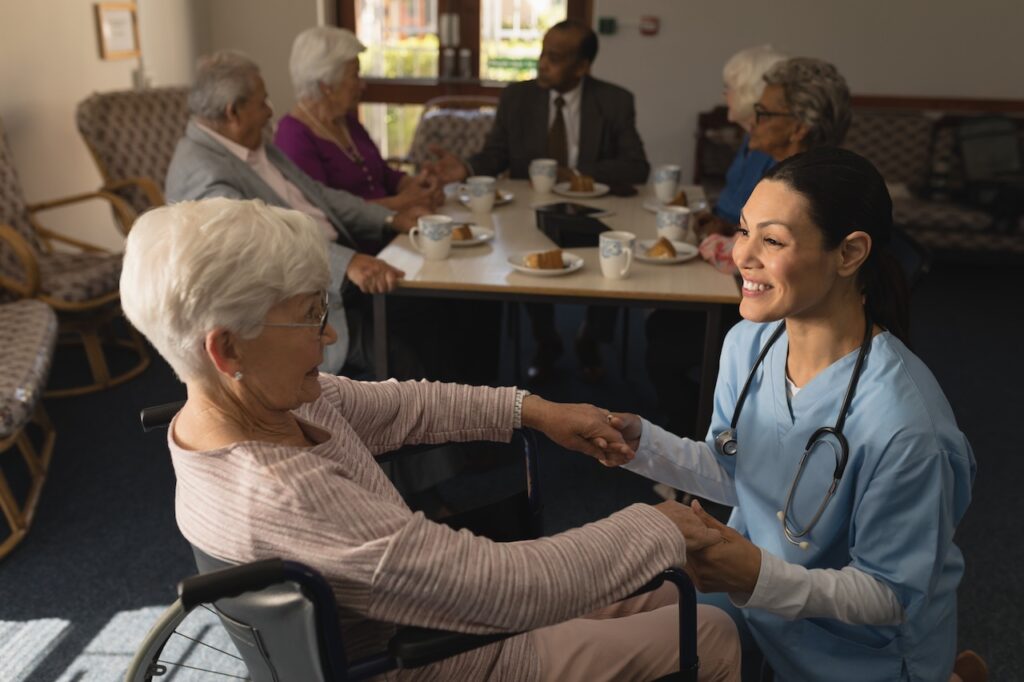Elderly malnutrition is a serious concern for older individuals in all situations, but it becomes especially relevant when they are living in a nursing home where they have less control over their meals and care. Today’s post will help you identify signs that your loved one may be malnourished and know when it’s time to get help from an elderly malnutrition lawyer.
What Is Elderly Malnutrition?
Elderly malnutrition is a condition where older adults do not receive adequate nutrients to maintain their health and physical function. It can result from a combination of factors such as poor appetite, underlying medical conditions, or inadequate access to nutritious food.
What Are Some Signs of Malnutrition?
If you have an elderly family member or loved one, keep an eye out for these signs that they may be malnourished or that they are more at risk of becoming malnourished.
Physical Symptoms
- Fatigue
- Dry skin
- Brittle nails
- Constantly feeling cold
- Poorly fitting clothes, sunken eyes and cheeks, or other signs of weight loss
- Delayed healing from wounds or sicknesses
- Unexpected dental problems
- Increased frailty and muscle weakness
- Infrequent bowel movements
Behavioral Indicators
- Depression
- Irritability
- Difficulty concentrating
- Food aversions or loss of appetite and interest in food
- Difficulty remembering when or if they ate
- Frequent coughing, choking, or gagging when eating
- Poor eating habits (eating mostly processed food, leaving most of a meal on the plate, letting produce and other fresh foods go bad, etc.)
Many of these symptoms can also be related to different mental or physical health concerns, so look into any issues and consult a medical professional to get an exact diagnosis.
What Causes Elderly Malnutrition?
Elderly malnutrition can be a result of many factors, some of which may warrant the need for an elderly malnutrition lawyer.
Loss of Appetite
A natural decrease in appetite is common with aging, but it can lead to inadequate calorie and nutrient intake. Factors like hormonal changes, dental issues, or reduced sense of taste and smell can contribute to this issue, so it’s important to address or at least identify these underlying causes when possible.
Decreased Mobility
Limited mobility can make it challenging for elderly individuals to shop for groceries, prepare meals, or physically access food. This can result in poor diet choices or a reliance on unhealthy, processed foods that lack necessary nutrients.
Chronic Illness
Chronic illnesses such as diabetes, heart disease, or gastrointestinal disorders can interfere with nutrient absorption or dietary intake. These conditions often require special diets, which may be difficult to follow without proper support or guidance.
Medication Side-Effects
Many medications taken by older adults can cause side effects like nausea, dry mouth, or changes in taste, all of which can diminish their appetite and make it harder for them to get needed calories and nutrients.
Loneliness or Depression
Social isolation and feelings of loneliness are common among the elderly and can result in less motivation to cook or eat. Depression or other mental health struggles can also reduce interest in daily activities like eating, leading to nutritional deficiencies.
Nursing Home Neglect
In some cases, elderly individuals living in care facilities may not have their dietary needs met through no fault of their own. Infrequent or missed meals, insufficient portion sizes, or lack of personalized menus for special dietary needs can contribute significantly to malnutrition in nursing homes. In these scenarios, it’s crucial to seek help from an elderly malnutrition lawyer as soon as possible.
How Do I Know If I Need an Elderly Malnutrition Lawyer?
If your loved one is staying in a nursing home and shows signs of elderly malnutrition, they may be a victim of nursing home neglect.
To determine if the nursing home is at fault, carefully document any signs of malnutrition and compare them against the facility’s responsibilities outlined in their care plan. Ask your family member about the meal schedule and what they are fed. You may also want to review meal schedules and plans straight from the admin of the care center.
If evidence suggests neglect, address your concerns directly with the facility’s management and request immediate corrective action. If the issue persists, consult a trusted elderly malnutrition lawyer, who can help you explore legal options to hold the nursing home accountable and ensure your loved one’s safety.
Don’t Take Neglect On Alone
Elderly malnutrition is a serious concern, and it should never be caused by the neglect or mistreatment of others. At PDLM, we promote the proper care of your loved ones by fighting back against improper nursing home care and making sure justice is restored to you and your family.
For a complimentary, personalized evaluation of your case, just get in touch with one of our nursing home abuse lawyers. Let’s work together to take care of your family.

